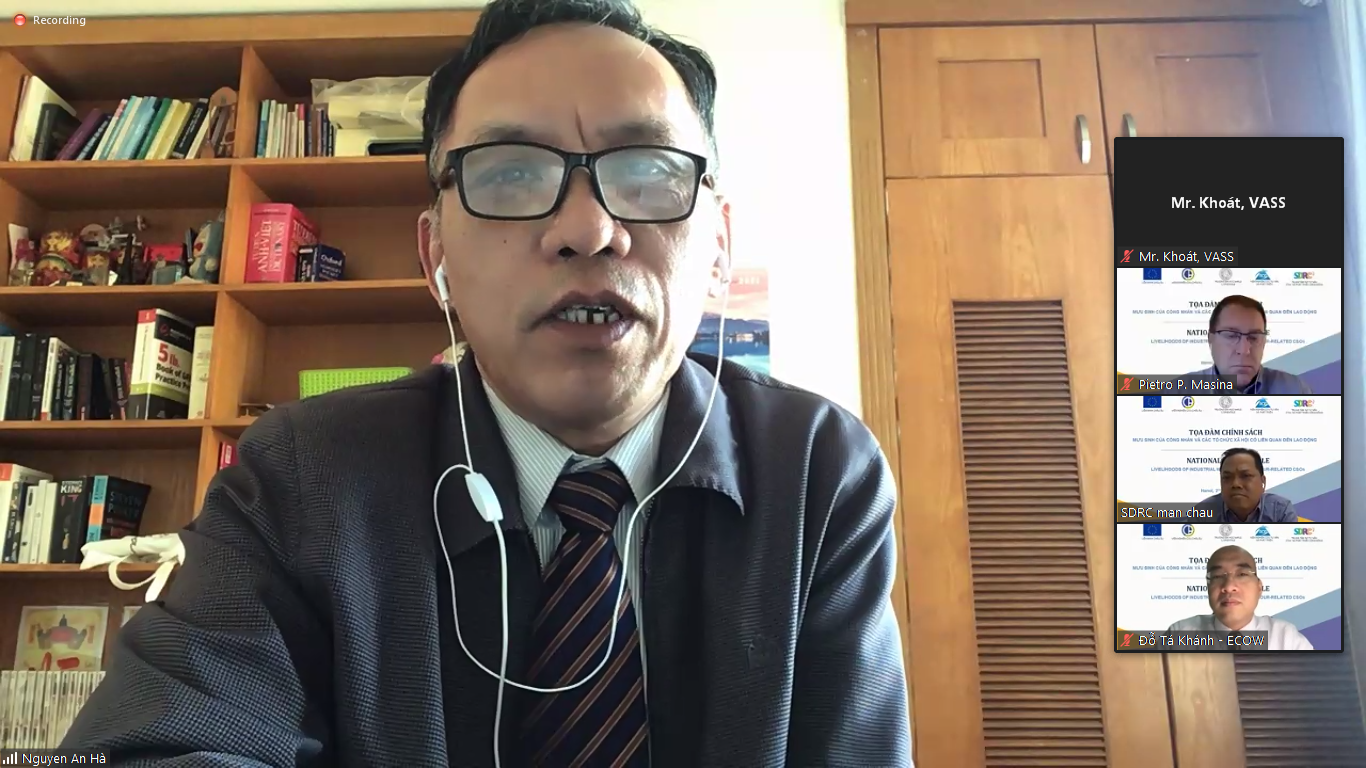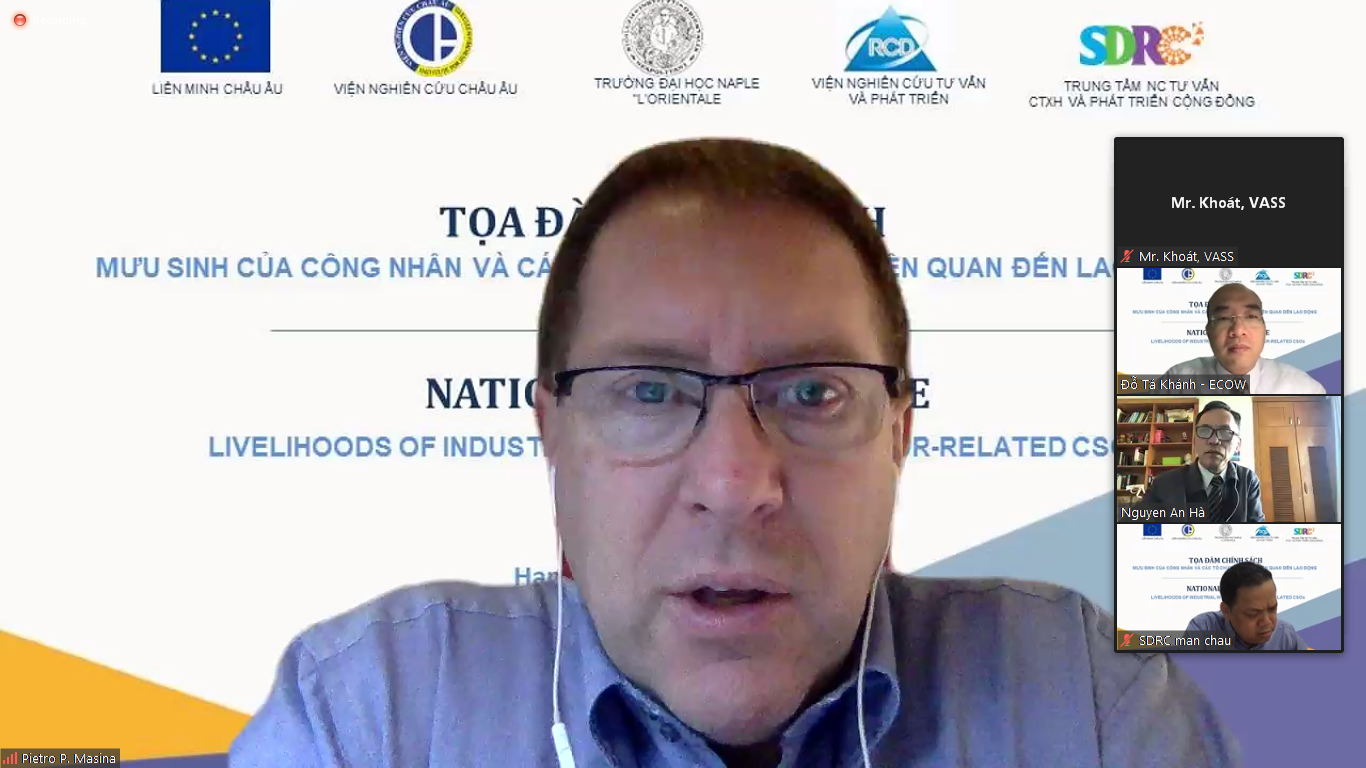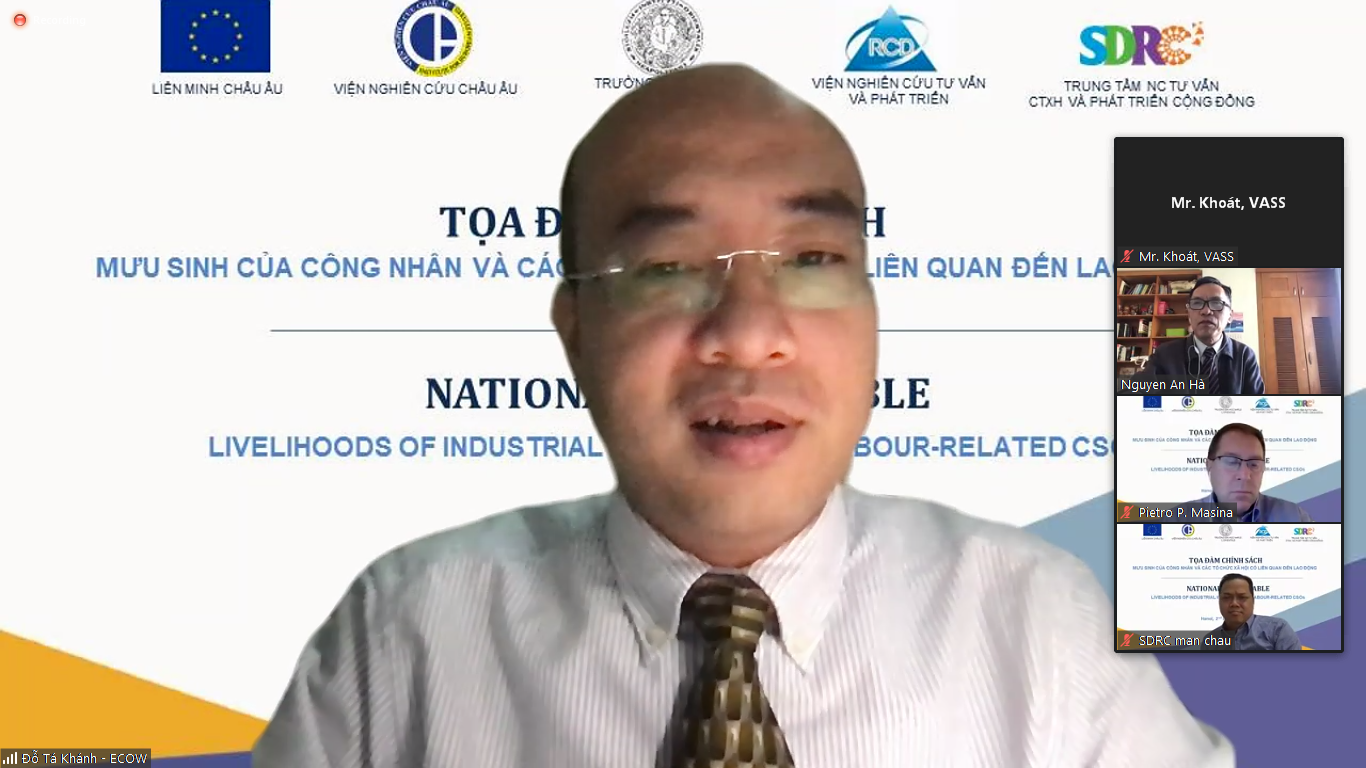
With the rapid pace of industrialization and the increasing labor force in the industrial sector, the implementation of social security assurance, especially social assistance for workers, will require the cooperation of both sides social organizations, including trade unions, mass organizations and NGOs.
Trade unions in Vietnam are currently the only organization representing the rights and interests of workers in general and workers in industrial zones in particular. Most of the enterprises in the industrial zones have established unions and most of the workers working in those enterprises have been admitted as union members. However, unions mainly operate on factory premises and are absent from migrant workers' hostels.
Along with trade unions, currently NGOs have also been implementing programs and projects, contributing to improving social security for workers. International NGOs have actively raised funds and directly implemented projects (Tear Fund UK, Oxfam, Roxa Luxemburg, Action Aid, Care International...). Support activities of international organizations focus on organizing and building networks through domestic social organizations to protect the rights of workers, especially female workers. Through those programs and projects, social organizations can improve their capacity and implement policy advocacy on issues related to employees such as Labor Law, living wage, enterprises and other stakeholders…
 |
 |
Speaking at the Talk, Dr. Do Ta Khanh, ECOW Project Director, thanks for the large participation of delegates from related agencies and organizations attending the seminar. Dr. Do Ta Khanh gave an overview of the implementation results of the ECOW project. Dr. Do Ta Khanh emphasized that the Seminar is an event to introduce project results to agencies and organizations, and at the same time discuss issues of workers' livelihoods, especially the coordination of relevant parties, agencies such as businesses, trade unions, social organizations, local authorities ... to bring the best and most effective support to employees.
Delegates gave speeches and presented their presentations at the Seminar
At the seminar, two reports were presented: (1) "Depending development model and implications for industrial workers", by Prof. Pietro Masina, Naple University “L’Orientale” – Italy; (2) “The role of social organizations in supporting workers in industrial zones”, by MSc. Chau Hoang Man, ECOW Project Officer.
During the discussion session, the delegates heard: Prof. Pietro Masina, University of Naples “L’Orientale”, Italy; Dr. Vu Minh Tien, Director, Institute of Workers and Trade Unions, Vietnam General Confederation of Labor (VGCL); Dr. Tran Thi Hong Lien, Deputy Director of the Office of Gender Employers (VCCI); Masters Le Thanh Tung, Deputy Head of Advisory, Review and Social Assessment Committee, Vietnam Union of Science and Technology Associations (VUSTA); MSc. Dr. Nguyen Thu Giang, Light Institute of Public Health (LIGHT); Mr. Le Bich Phong, Program Manager, Center for Improving the Quality of Life - LIFE, discussed the relevant topics.
Mentioning the dependent development model and its implications for employees, Prof. Pietro Masina, University of Naples L'Orientale, said that employment in foreign-invested or export-oriented enterprises in Vietnam is very precarious, vulnerability remains a high concern and can expose workers to new shocks. The young workforce, mainly immigrant women, spent only a few years working in factories due to very difficult conditions. Working conditions in the electronics field in the North are even more difficult and do not guarantee family life, so most workers quit after a few years of working…
Assessing the role of social organizations in supporting workers in industrial zones, when it comes to some social security issues of workers working in industrial zones, Mr. Chau Hoang Man, Center for Social Work and Community Development Research and Consultancy - SDRC said that most workers working in industrial zones are migrants, and housing and schools for children are problematic, their primary concerns; The increase in the number of migrants has led to an overload of the local social infrastructure receiving migrants. Although workers are not poor, they always face precarious situations. Any event such as job loss, illness, family member's difficulty, disease... will make them fall into poverty. One of the main reasons for this is the very low savings rate of workers, even though the base salary has increased significantly in recent years.
Mr. Chau Hoang Man said that the labor support activities of the above organizations can be divided into a number of main groups as follows: (i) The migrant worker support group has access to legal documents (Law). Labor Law, Law on Social Insurance, Health Insurance, Unemployment Insurance, Law on Residence, Housing); (ii) The group provides free legal advice in businesses, on mobile phones in residential areas, at activities/centers, through information sessions, hotlines, forums; (iii) Support group with knowledge and life skills for workers (knowledge on reproductive health, safe sex, sex); (iv) Group providing vocational skills to help change careers in the future; policy advocacy group and strengthen negotiation and dialogue capacity. This field of activities is very rich and diverse, covering many different target groups, from formal to informal migrant workers, many professions, in many different locations.
Proposing a number of proposals to contribute to improving the performance of social organizations, Mr. Chau Hoang Man emphasized, so that the activities of NGOs and organizations reach workers practical and effective. Moreover, these organizations need to strengthen coordination with Labor Confederations at all levels and grassroots trade unions in organizing activities. Research of the ECOW project also shows that social organizations related to labor need to have a coordination mechanism with brands and businesses in coordinating and implementing activities. To increase social security support for workers is not necessarily a financial burden on the State. Instead, diverse participation is needed, from trade unions to NGOs and other types of social organizations to mobilize resources, share responsibility for contributing to welfare programs, ensure social security for workers and workers in general.

Concluding remarks at the Seminar, Dr. Do Ta Khanh highly appreciated the content of the presentation reports and the comments and contributions of the participants. Dr. Do Ta Khanh emphasized that the project focuses on supporting employees with different approaches based on the functions, tasks and operational goals of each organization; promote dialogue between workers and employers through the representation of trade unions; promote coordination between employers, trade unions and social organizations to support workers in the workplace. Appreciate the active participation of the delegates to help the project achieve the set goals, and look forward to continuing to receive more contributions from the delegates and organizations, the European Union, will continue to accompany and support the network of labor-related social organizations in Vietnam to become more and more effective.
Reporter







